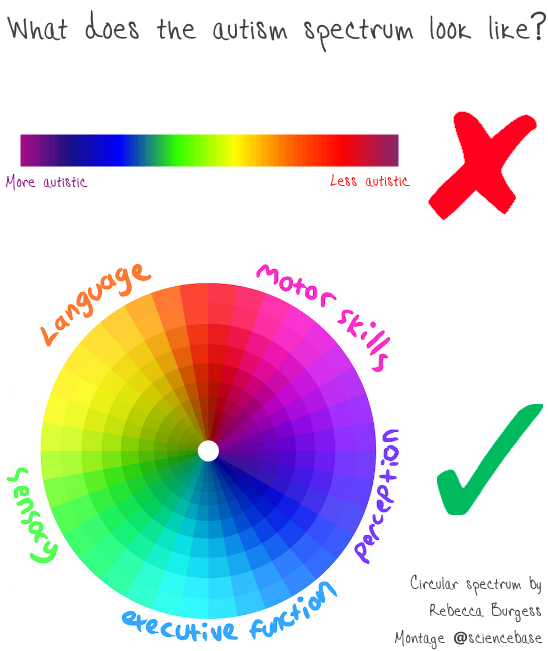About this post: For Autism Acceptance Month, this post explores why the terms “high functioning” and “low functioning” are actually harmful, and why it is most important to accept an autistic person wherever they’re at.
You may have heard the terms “low functioning” and “high functioning” while describing
different mental and developmental disorders, particularly with describing people on the autism spectrum. However, many mental health professionals, advocates, and autistic people find these labels inaccurate and harmful. Here’s why:
1. The functioning labels are outdated.
The terms “high functioning” and “low functioning” first appeared in a research study in the 1980s and were used to differentiate between autistic people with and without an intellectual disability. After the study was conducted, many professionals pointed out that IQ tests cannot measure variables that impact autistic people, such as executive functioning and social skills. This means that IQ doesn’t always impact functioning. But by the time this was pointed out, the general population started to adopt and use the functioning labels.
2. What is considered “functioning” can be subjective.
While there are certain activities of daily living (ADLs) that are considered essential to functioning (ie. eating, sleeping, hygiene, etc.), there are some skills that are subjective when it comes to its necessity to daily functioning.
For example, one might label someone who is non-verbal as “low functioning” because they cannot verbally speak. But many people who are non-verbal can communicate in other ways such as sign language or a communication aid (eg. a computer/tablet).
It would be like if we labeled someone who is hard of hearing as “low functioning” because they use a hearing aid, or someone who is in a wheelchair as “low functioning” because of restricted mobility. We don’t use the functioning labels for these disabilities because we know that they are still able to function.The same can be applied for autistic people.
3. People who are deemed “high functioning” often get their symptoms minimized and deal with long term consequences.
While it may appear on the outside that these individuals who might be considered as “high functioning” can function without issue, in reality, they struggle daily with issues such as sensory processing, executive functioning, and more. These individuals may also “mask” to appear more neurotypical or “high functioning” so they do not receive judgement from others. They may maintain eye contact even though uncomfortable to do so, suppress stimming, and/or rehearse social situations and questions.
According to several studies, autistic adults who mask can experience autistic burnout which can lead to increased anxiety and depressive symptoms, low self-esteem, suicidal ideation, and physical and emotional exhaustion. Masking can also delay receiving a diagnosis and necessary help/support.
4. Those deemed “low functioning” face large amounts of stigmatization.
In contrast to individuals who are labeled “high functioning”, individuals who are labeled “low functioning” are often perceived as incapable in different areas such as learning, intelligence, and more, even though this is often not the case. These individuals may also be infantized and have their strengths and capabilities undermined.
So how should we look at the autism spectrum and what labels should we use?
As seen in the image below, autism is not a linear spectrum of “more and less” or “high functioning and low functioning”, but a wide spectrum based on several areas of symptoms. For instance, an autistic person can struggle a lot with sensory issues and perception but not language, or vice versa. Some might struggle with a little bit of each area.
As for what labels to use, many autistic people just prefer to be called “autistic”. If the person’s symptoms or level of needs need to be discussed, one could say “this person needs more/less support in this area” rather than using functioning labels. When in doubt, ask the person what they prefer!
Written by Mairead Keogan, LMSW, a psychotherapist at graymatters

